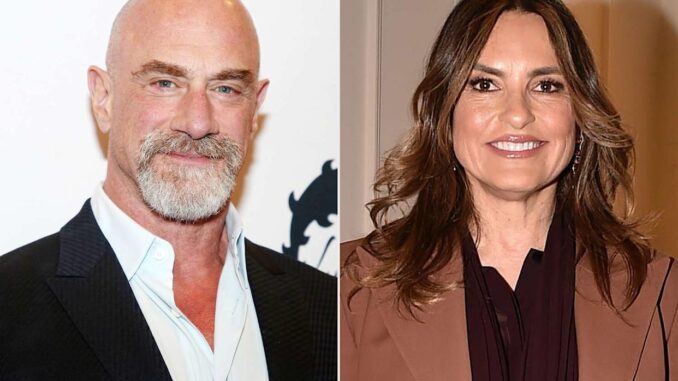
“`html
The will-they-won’t-they dynamic is a staple of television, a narrative engine fueled by unresolved tension and the tantalizing possibility of romantic connection. For over two decades, Christopher Meloni’s Detective Elliot Stabler and Mariska Hargitay’s Captain Olivia Benson in “Law & Order: SVU” epitomized this dynamic. Their palpable chemistry, forged in the crucible of traumatic investigations and unwavering mutual respect, captivated audiences. Recently, Meloni’s candid admission that they were “attempting something” during a near-kiss scene that “didn’t work” sheds light on the delicate balance between artistic intention, character authenticity, and the demands of long-form storytelling.
The Near-Kiss: An Experiment in Long-Awaited Intimacy
The specific scene, undoubtedly burned into the minds of SVU fans, presented a pivotal moment: a culmination of years of unspoken feelings finally threatening to surface. The anticipation was built, the air thick with unspoken desires. According to Meloni, the intention was clear: to push beyond the usual boundaries of their platonic connection and explore a deeper, more intimate level. However, as he acknowledged, the attempt ultimately “didn’t work.” This raises several intriguing questions:
- What exactly were they attempting? Was it a subtle shift in body language, a prolonged gaze, or a more overt physical gesture?
- Why didn’t it work? Was the execution flawed, the timing off, or the scene itself ultimately unsuited to the weight of expectation?
- What were the implications for the characters and the show’s overall trajectory? Would a successful kiss have irreparably altered their dynamic, satisfying some viewers while alienating others?
Several factors likely contributed to the creative decision to pull back from the brink. Firstly, the characters’ history is complex and deeply rooted in shared trauma. Jumping headfirst into a romantic relationship could have felt unearned or even disrespectful to the foundation of their partnership. Secondly, the very nature of “SVU” as a police procedural dictates a certain level of professional detachment. Allowing romantic entanglement to dominate the narrative could have detracted from the show’s central focus on crime and justice. Finally, the writers and actors may have recognized the potential pitfalls of fulfilling the audience’s desires too quickly. Prolonging the tension, even indefinitely, can be a more effective strategy for maintaining viewership and keeping the characters’ relationship compelling.
Ultimately, Meloni’s admission offers a fascinating glimpse into the creative process behind a beloved television show. It highlights the collaborative nature of acting and writing, the constant negotiation between artistic vision and audience expectation, and the delicate art of crafting a compelling narrative. While the near-kiss may not have “worked” as intended, the very attempt speaks to the power of Stabler and Benson’s enduring connection and the profound impact they have had on television history. The unspoken tension, the unfulfilled promise, remains a potent force, ensuring that the debate over their relationship will continue to fuel discussions among “SVU” fans for years to come. The fact that they even *tried* suggests the actors, and perhaps even the writers, felt the gravity of the moment and the yearning of the audience.
“`
